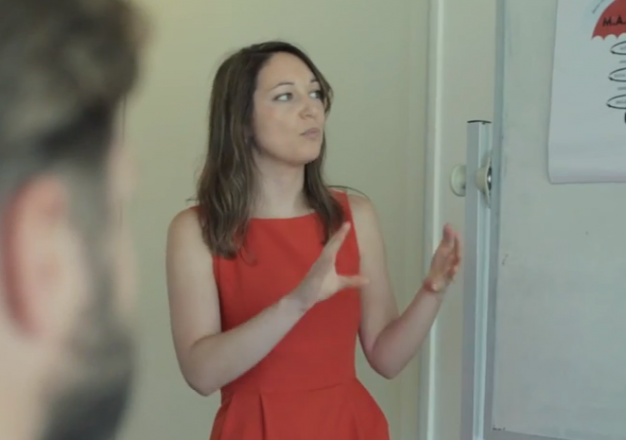How to Achieve Home-School Collaboration

| Posted: | April 13, 2015 |
| Author: | Aisling Mulvihill Speech-Language Pathologist |
Share this article:
The Value of Collaboration
Home-school collaboration is an important step in supporting a child’s positive engagement in the learning and social aspects of school life. Parents and schools have a common goal; to see children develop the skills for life and learning, to see children succeed, and to see children happy. The goal of enhancing children’s competence, participation, and positive learning and social behaviours cannot be achieved by teachers alone and requires active partnerships with families. There is much research to suggest that home-school collaboration has benefits for all – children, parents and teachers.
What does the Research tell us about Home-School Collaboration?
The Benefits for Students:
- More positive attitudes towards school
- Improved behaviour
- Increased homework completion
- Greater participation in school activities
- Improved school attendance
- Higher academic achievement
The Benefits for Parents:
- Enhanced parental confidence
- More positive experiences with teachers and schools
- Improved communication with children
- Increased confidence in their role of supporting homework completion
The Benefits for Teachers:
- Increased job satisfaction
- Improved communication and positive relationships with families
- Increased confidence in management of behavioural and learning challenges
Developing Positive Partnerships
Developing effective partnerships across homes and schools first requires an understanding and belief that parents and teachers are doing the best they can within the constraints of policy, time, life demands, knowledge, experiences and personal or work based resources. In developing positive partnerships families and educators work together as ‘active and equal partners who share responsibility for the learning [and social] successes of all students’ (NASP, 2012, p. 1). Home-school partnerships are focused on setting joint goals for a child and ensuring consistency and continuity in how these goals are achieved across home and school. Effective partnerships will benefit from clear and open communication with a focus on shared goals, shared language and shared supports. Positive partnerships are ongoing and responsive in recognition of the ever-changing learning and social demands on children as they move through their school careers. Parents and teachers respond to needs as they arise, share successes and build on positive outcomes.
The Challenges
With ever-increasing demands on both teachers and parents there are many potential challenges or barriers to creating positive partnerships.
Time
Time challenges for both parents and teachers can have a notable impact on opportunities for collaboration and relationship building. In the typical school day there is limited opportunity for communication and discussion. Many parents work during school hours and may be unable to attend all school based activities or partake in school based voluntary opportunities. Teachers contend with classroom based management, limited planning opportunities and the demands of curriculum goals, leaving little time for dialogue with parents during school hours. Unfortunately time challenges can prevent the formation of positive relationships, with dialogue between parents and teachers initiated in times of high stress (e.g. challenges with performance or behaviour) rather than throughout a child’s educational experience.
Trust
Trust is an important element in developing positive relationships between home and school. However few opportunities to communicate, negative past experiences, and a tendency for communication to be initiated in times of student stress can lead to distrust on the part of both parents and teachers. When trust is limited there may be a tendency to focus on blame with attribution of the child’s challenge to either home or school factors, which negatively impacts on attempts at collaboration.
Different Expectations or Goals
Parents and teachers may have different expectations and goals for a student. Parents and teachers have different experiences of a child and see the child’s learning and behaviour in two different contexts – home and school. For example, the highly energetic and creative child who moves quickly between tasks may add fun and excitement to life at home, but may be a challenge in the classroom where s/he is expected to attend, sit still and complete tasks. The best outcomes for a student will result from honest sharing of information and mutual goal setting that recognises the strengths, challenges and personal motivations of the student.
It is in recognising and addressing these barriers that parents and teachers can actively problem solve and develop strong and sustainable partnerships.
“A challenge only becomes an obstacle when you bow to it.” Ray Davis
Top Tips for Parents and Teachers
Collaborative partnerships for the benefit of students will require effort on both the part of parents and educators. The following are some ‘tips’ for parents and educators to help set solid foundations for positive partnerships.
1. Create a Collaborative Environment
A welcoming and friendly school environment is essential in setting the context for positive participation. School policies, structures and events can have a positive impact on setting an expectation of collaborative partnerships (Emmerson, et. al. 2012).
- Welcome nights, school newsletter communication, and regular school events provide opportunities for parents and educators to communicate.
- Where possible, schools could invite both parents and educators to engage in learning together. Inviting both parents and teachers to professional development events or evening seminars, reinforces the message that we are all working in partnership to support the educational experiences of students.
- Setting accessible and transparent policies around collaboration, identification and management of student challenges, and handling of complaints and grievances, provides clear guidelines for parents and educators to follow. Expectations are clear.
- Schools can support teachers in developing partnerships with families by providing guidance, information and training on effective communication skills and cultural norms.
2. Communicate Whenever and However Possible
Communication is key. Communicate openly and regularly. This helps develop trusting, open and supportive relationships.
- It is never too late for parents and teachers to openly state their intent to collaborate with one another. Stating a willingness to communicate and how best to communicate is an important first step (e.g. ‘If you have any concerns or observations about John’s learning please let me know. I work during the day but if you contact me by email I will get back to you as soon as possible.’).
- ‘Time’ can present as a significant communication barrier. Where opportunities for face-to-face interactions are limited, parents and teachers can creatively work around such constraints and avail of many modes of communication including phone calls, emails, video messages or communication books.
- Don’t wait for challenges to arise in order to initiate communication. Share positive stories, events and progress with one another whenever possible (e.g. ‘John played well with his friends today and joined in on their interests.’ ‘Kim really enjoyed a recent homework task about native Australian animals and benefited from watching the You Tube clips suggested.’). Positive communication and interactions between families and educators can help build trust over time (Adams and Christenson, 2000).
- For parents whose children receive extra support for learning, behaviour or social challenges, it is important to share relevant information amongst all parties such as the classroom teacher, teacher aide, learning support teacher, guidance counsellor and therapists (e.g. speech therapist). Sharing information from one context (e.g. speech therapy sessions) to another allows all parties to make shared decisions, set shared goals and use a shared language in best supporting your child. If all parties are consenting there may be value in setting up an email group where updates to goals and progress can be shared readily.
3. Be Honest
Open and honest communication is essential for trust and is the cornerstone of strong and effective partnerships between homes and schools. When parents and educators are honest about their concerns, their skills and their need for support, expectations are clear and families and educators can work together in developing relevant and achievable goals.
- For parents we suggest being honest about your hopes and concerns, your child’s strengths and challenges, and your own strengths and limitations. This helps teachers understand your child and identify the strategies and supports that might set your child up for success.
- When teachers are transparent, honest and respectful in their interactions, parents are more willing to engage in two-way communication. We suggest that teachers highlight a child’s observed strengths and challenges early in the school year and provide clear examples for parents from the school setting. When children have learning or behavioural challenges we suggest that teachers are honest with parents and school teams about their own strengths and limitations and seek support as necessary.
4. Avoid Blame and Seek Solutions
When teachers and families work in partnership to seek solutions there are benefits for all involved. Collaborative partnerships are best built on the belief that all parties are doing the best they can with the knowledge and resources available to support children’s learning and social participation in school (Virginia Department of Education, 2002).
- Withhold judgments and try to understand the other person’s perspective. Parents and teachers may have different experiences of a child. The demands on behaviour, learning and social participation at home may be very different to those of the classroom. Parents and teachers may have different experiences, cultural and educational backgrounds, and varied resources available to them. Be sensitive to each other’s perspectives, avoid blame and maintain focus on student outcomes.
- Discuss strategies and supports that work well at home and school in developing a shared language of support. It is very beneficial for children when skills are supported across contexts. School can be limited in terms of time and resources. The more supports and tools parents can provide the better (e.g. useful books, posters, calming toys).
References: Adams, K., & Christenson, S.L. (2000). Trust and the family-school relationship: Examination of parent-teacher differences in elementary and secondary grades. Journal of School Psychology, 38 (5), 477-497.
Emerson, L., Fear, J., Fox, S. & Sanders, E. (2012). Parental engagement in learning and schooling: Lessons from research. A report by the Australian Research Alliance for Children and Youth (ARACY) for the Family-School and Community Partnerships Bureau: Canberra.
Henderson, A.T. & Mapp, K.L. (2002). A new wave of evidence: The impact of school, family and student connections on student achievement. Austin TX: Southwest Educational Development Laboratory.
Bethesda, M.D. (2012). School-family partnering to enhance learning: Essential elements and responsibilities (Position Statement). National Association of Psychologists.
Queensland Government. (2013). Parent and Community Engagement Framework: Working Together to Maximise Student Learning.
Reschly, A. & Christenson, S. (2012). Moving from ‘Context Matters’ to Engaged Partnerships with Families. Journal of Educational and Psychological Consultation. 22(1-2). 62-78.
Virginia Department of Education. (2002). Collaborative Family-School Relationships for Children’s Learning: Beliefs and Practices. Retrieved from http://www.doe.virginia.gov/support/student_family/familyschool_relationships/collaborative_family-school_relationships.pdf





